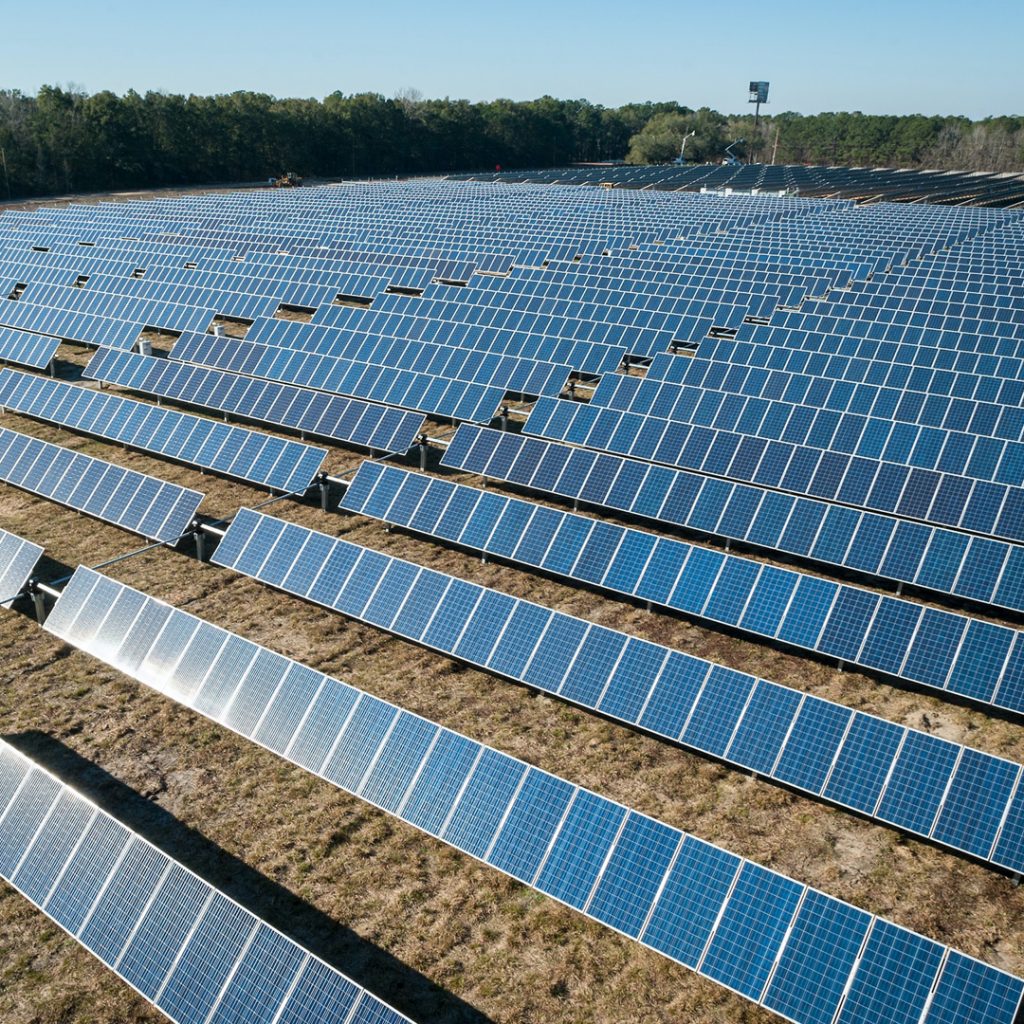County approves solar farm near Dunnellon

Deal includes land for public trail
Marion County moved closer to having its first solar-energy farm — and outdoor enthusiasts stand to reap an important side benefit, if or when the project gains final approval.
The County Commission Oct. 20 unanimously approved a request by Kingston Properties LLC to plant a 294-acre field of solar panels on a site along the Withlacoochee River in Dunnellon.
But with its vote, the board also secured land to develop a paved 30-foot-wide multiuse recreational trail that will help link the Marjorie Harris Carr Cross Florida Greenway across the state.
As of this writing, county staff and the landowner were still negotiating whether the trail property would be an acre-for-acre swap, with the Florida Department of Environmental Protection kicking in land, or an easement to the solar farm site granted to Marion County.
Either way, securing this land would fulfill a longtime goal shared by the county and the DEP’s Office of Greenways and Trails.
According to the county’s plan, the proposed trail would traverse the site along the northern and eastern edge of the solar farm for about four miles. It would link the easternmost point of the Kingston land to the Dunnellon Sportsplex, Kenneth Odom, the county’s transportation planner, told the Gazette on Wednesday.
Odom added that smaller gaps still must be filled.
One stretch would run northeast for perhaps three miles from the eastern terminus of the proposed trail to DEP’s Pruitt Trailhead on County Road 484.
Meanwhile, on the western end, a mile-long path would be needed to reach the Dunnellon Trail, another state recreation area that bridges the river into Citrus County.
The state, Odom said, has recently commenced with tying that trail, via a tunnel at U.S. 41 just south of the city, to the Withlacoochee State Trail, about 2½ miles away.
Once connected, a contiguous paved trail would reach from Dunnellon down to Blanton in Pasco County, more than 50 miles away.
If the other breaks identified by Odom are connected, the trail would continue east almost to Jacksonville.
At the meeting, Odom told the County Commission that a few years ago the Legislature had appropriated funding for a proposed trail to link the open areas.
That money went away, however, when there was no action to move the project along, he said. Which means the county, DEP, or both would have to lobby lawmakers for new funding in the state’s 2022 budget.
In response to a critic who questioned the solar farm’s effect on the area’s trail system, John Taylor, the agent for Renewable Management Services, the Riviera Beach-based firm that will build the solar farm, maintained, “We’re trying, I think, to make the Greenway better.”
Mickey Thomason, manager of the Greenway, told commissioners he appreciated the county’s effort to address this situation.
“We are in support of trying to get the trail gap remediated,” Thomason said.
Hopefully, he added, the agencies and Kingston “can get a connector done so that everybody can enjoy it out into the future.”
It is not a done deal, however.
The city of Dunnellon also must weigh in. The property including the solar farm spans 1,100 total acres, about 30 percent of which is within the city.
Dunnellon Community Development Manager Lonnie Smith said officials continue to review a proposed change to the city’s comprehensive land-use plan to create a category for solar farms.
The suggestion cleared the city’s Planning Commission this week. It will now go before the City Council on Nov. 9. If the council agrees, the plan will be sent to the state for study and recommendations.
Meanwhile, the Cannon family, owners of a neighboring ranch, is weighing a legal challenge to the County Commission’s action.
On Oct. 20 Stacie Corbett, a lawyer representing the Cannons, renewed objections the family first made last month. The application was tabled at the time so the landowner could evaluate the county’s request for the trail easement.
Corbett said the Cannons are not “anti-solar,” but they do believe too many unanswered questions remain about the “massive” project’s impact on their land.
She complained that county planners had not visited a similar project elsewhere to gauge the ramifications.
The estimated $95 million project, if allowed, is expected to generate 74.9 megawatts of electricity – enough to power 15,000 homes.
Taylor has suggested the site will serve Duke Energy. Duke officials, however, have said no deal exists yet.
Corbett noted that as well in her complaints, saying the developer has no contract with the power company, and there is no sign one will be inked.
Corbett further took exception to Taylor’s assertion that the project would boost tax revenues. She argued studies have shown that “a solar farm of this size does have a negative impact on land values for its neighbors.
“They are concerned about this coming in right next to them,” Corbett said.
Last month, in a letter to the County Commission announcing the Cannons’ opposition, Corbett indicated the Cannons may consider a lawsuit under the state’s Bert Harris Act. The law permits landowners to sue the government if they can demonstrate their land values have suffered because of some government action.
County Attorney Guy Minter said after the meeting that he has not been contacted by the family or its lawyer and so is not sure what may happen next.
Minter also said that Florida courts have ruled that landowners directly affected by government regulation, and not neighbors, are entitled to make a Bert Harris Act claim.





